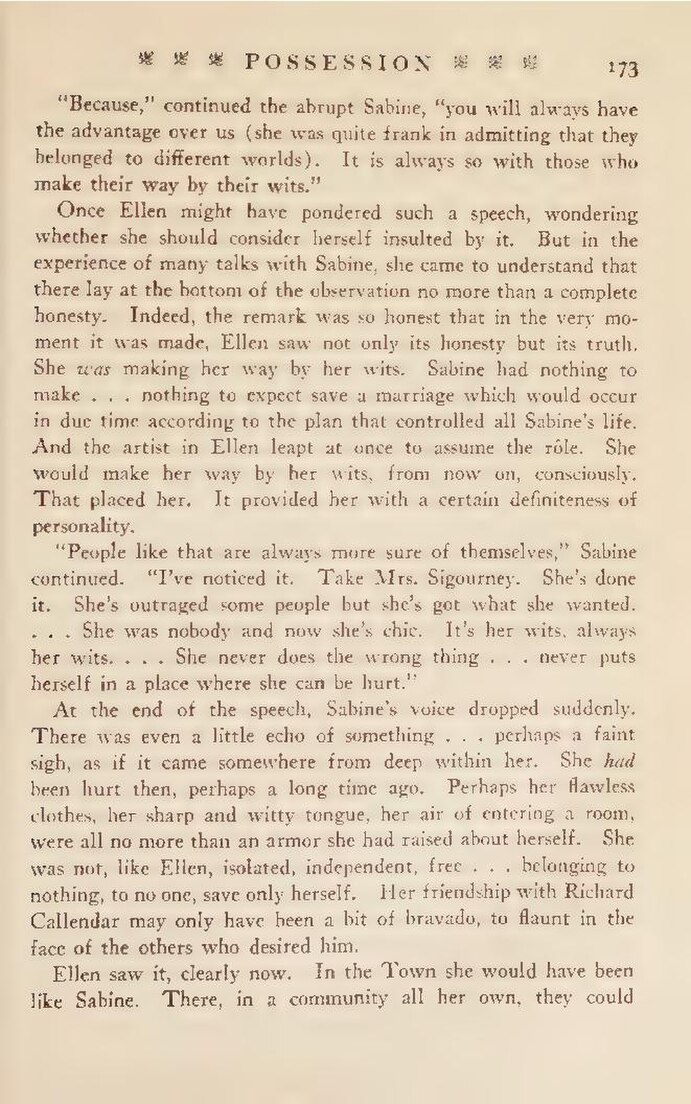"Because," continued the abrupt Sabine, "you will always have the advantage over us (she was quite frank in admitting that they belonged to different worlds). It is always so with those who make their way by their wits."
Once Ellen might have pondered such a speech, wondering whether she should consider herself insulted by it. But in the experience of many talks with Sabine, she came to understand that there lay at the bottom of the observation no more than a complete honesty. Indeed, the remark was so honest that in the very moment it was made, Ellen saw not only its honesty but its truth. She was making her way by her wits. Sabine had nothing to make . . . nothing to expect save a marriage which would occur in due time according to the plan that controlled all Sabine's life. And the artist in Ellen leapt at once to assume the rôle. She would make her way by her wits, from now on, consciously. That placed her. It provided her with a certain definiteness of personality.
"People like that are always more sure of themselves," Sabine continued. "I've noticed it. Take Mrs. Sigourney. She's done it. She's outraged some people but she's got what she wanted. . . . She was nobody and now she's chic. It's her wits, always her wits. . . . She never does the wrong thing . . . never puts herself in a place where she can be hurt."
At the end of the speech, Sabine's voice dropped suddenly. There was even a little echo of something . . . perhaps a faint sigh, as if it came somewhere from deep within her. She had been hurt then, perhaps a long time ago. Perhaps her flawless clothes, her sharp and witty tongue, her air of entering a room, were all no more than an armor she had raised about herself. She was not, like Ellen, isolated, independent, free . . . belonging to nothing, to no one, save only herself. Her friendship with Richard Callendar may only have been a bit of bravado, to flaunt in the face of the others who desired him.
Ellen saw it, clearly now. In the Town she would have been like Sabine. There, in a community all her own, they could
